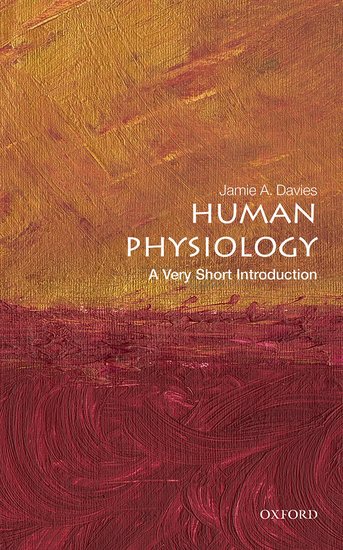Home >
A Very Short Introduction >
Human Physiology (Science)
A Very Short Introduction | Science
Human Physiology
ISBN: 9780198869887
Series: A Very Short Introduction
Human Physiology (Science)
A Very Short Introduction Human Physiology (Science) Media > Books > Non-Fiction > Education Books Expect Delays of Up to 4 Weeks| Order Below |
ISBN
9780198869887 (10-digit ISBN: 0198869886)
- Description
- Key Features
- Series Description
- Table of Contents
- Explores the field of human physiology, including the experiments and research methods involved in understanding how the human body works
- Considers the interplay of a wide variety of physiological mechanisms and principles to sustain life
- Discusses the medical applications of discoveries in the field of human physiology
Physiology is the science of life, and sets out to understand how living things work and what makes them distinct from the non-living. It considers how our bodies are supplied with energy, how they maintain their internal parameters, the ways in which we gather and process information, the ways we take action, and the creation of new generations.
This Very Short Introduction explores the field of human physiology, considering how the body works, senses, reacts, and defends itself. As Jamie A. Davies shows, human life (and indeed, all life) is sustained by the interplay of a wide variety of physiological mechanisms and principles. He discusses the physiological experiments and research undertaken to understand these processes, and analyses the ethical issues involved. He also considers the evolution of the scientific field itself, showing how enhanced understandings of physiological knowledge can help inform medical research and care.
Oxford's Very Short Introductions series offers concise and original introductions to a wide range of subjects--from Islam to Sociology, Politics to Classics, Literary Theory to History, and Archaeology to the Bible.
Not simply a textbook of definitions, each volume in this series provides trenchant and provocative--yet always balanced and complete--discussions of the central issues in a given discipline or field. Every Very Short Introduction gives a readable evolution of the subject in question, demonstrating how the subject has developed and how it has influenced society. Eventually, the series will encompass every major academic discipline, offering all students an accessible and abundant reference library.
Whatever the area of study that one deems important or appealing, whatever the topic that fascinates the general reader, the Very Short Introductions series has a handy and affordable guide that will likely prove indispensable.
Please note: As this series is not ELT material, these titles are not subject to discount.
1:Human physiology: what it is and how it is done
2:Energy: food, oxygen, blood, heat, waste
3:Homeostasis: the stability of the internal environment
4:Sensation
5:Reacting and thinking
6:From thought to action
7:Defence
8:Reproduction
9:Concluding remarks
Further reading
Index
Physiology is the science of life, and sets out to understand how living things work and what makes them distinct from the non-living. It considers how our bodies are supplied with energy, how they maintain their internal parameters, the ways in which we gather and process information, the ways we take action, and the creation of new generations.
This Very Short Introduction explores the field of human physiology, considering how the body works, senses, reacts, and defends itself. As Jamie A. Davies shows, human life (and indeed, all life) is sustained by the interplay of a wide variety of physiological mechanisms and principles. He discusses the physiological experiments and research undertaken to understand these processes, and analyses the ethical issues involved. He also considers the evolution of the scientific field itself, showing how enhanced understandings of physiological knowledge can help inform medical research and care.
Key Features
- Explores the field of human physiology, including the experiments and research methods involved in understanding how the human body works
- Considers the interplay of a wide variety of physiological mechanisms and principles to sustain life
- Discusses the medical applications of discoveries in the field of human physiology
Series Description
Oxford's Very Short Introductions series offers concise and original introductions to a wide range of subjects--from Islam to Sociology, Politics to Classics, Literary Theory to History, and Archaeology to the Bible.
Not simply a textbook of definitions, each volume in this series provides trenchant and provocative--yet always balanced and complete--discussions of the central issues in a given discipline or field. Every Very Short Introduction gives a readable evolution of the subject in question, demonstrating how the subject has developed and how it has influenced society. Eventually, the series will encompass every major academic discipline, offering all students an accessible and abundant reference library.
Whatever the area of study that one deems important or appealing, whatever the topic that fascinates the general reader, the Very Short Introductions series has a handy and affordable guide that will likely prove indispensable.
Please note: As this series is not ELT material, these titles are not subject to discount.
EASY ORDER FORM
PRICES LISTED INCLUDE CONSUMPTION TAX
Price Before Tax:
¥1,790


